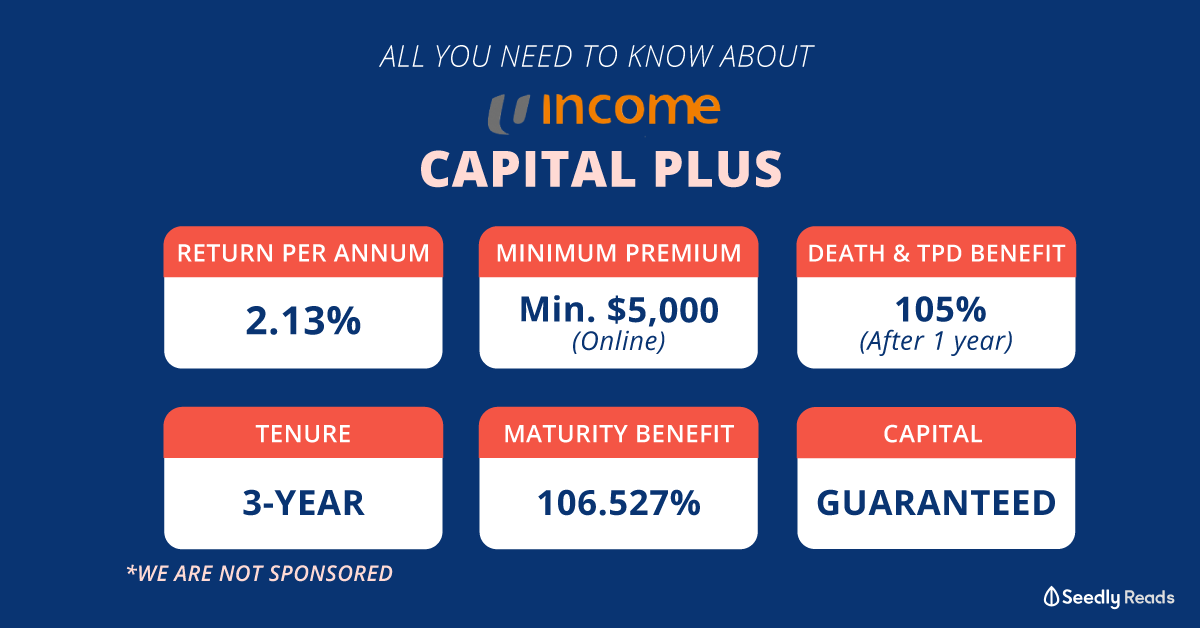Advertisement
Anonymous
I’m 30 am a smoker I have a only pru hospital plan. I am on a Budget constraint. Should I go for whole life or term life? And what about ci? Should I go for multi or single claim ci standalone?
8
Discussion (8)
Learn how to style your text
Elijah Lee
06 Aug 2020
Senior Financial Services Manager at Phillip Securities (Jurong East)
Reply
Save
Pang Zhe Liang
04 Aug 2020
Lead of Research & Solutions at Havend Pte Ltd
Firstly, we need to have a complete understanding on our cashflow. Through this process, we will understand our earning ability and spending habit.
Here is a Guide:
Understanding Your Personal Cash Flow
From the results, we will know the available budget for your insurance coverage. Above all, it is not about how much money to spend on insurance. Instead, the correct way to phrase it will be how much coverage to be insured for.
Let me give you a hypothetical example. Let's say that a $50k coverage costs only $300 annually and this is certainly within your budget. Will you choose to take it up? Maybe. Or maybe not since $50k of coverage won't really be meaningful in the future.
Consequently, what we need to do is to spend quality time to do a comprehensive financial planning. Through this process, it will allows us to accurately determine your needs, alongside with the budget that we should spend on insurance coverage.
Then the rest of whether to choose term or whole life, single or multi-claim Critical Illness will answer itself in due time.
I share quality content on estate planning and financial planning here.
Reply
Save
Patricia Law
04 Aug 2020
Financial Services Consultant at AIA
Hi there,
If you have budget constraint, it is best that you get your CI (multi claim) covered firs...
Read 3 other comments with a Seedly account
You will also enjoy exclusive benefits and get access to members only features.
Sign up or login with an email here
Write your thoughts
Related Articles
Related Posts
Related Posts
Advertisement









Hi anon,
We have to look at it in context of whether you are getting coverage for death/TPD (which is needed if you have dependents or liabilities), or getting coverage for CI. Either way, if you are tight on a budget, you can consider a renewable term plan over a shorter duration as a stop - gap measure. Generally, if you are covering death/TPD, then a term plan is still the most cost effective way, but if you are covering CI, a limited payment whole life plan would be better if your budget allows for it.
More importantly is the amount of coverage you need. For CI, ensure that you have enough to cover 5 years of your expenses as well as out of pocket treatment costs. Let's say it's about $150K you need. A 10/15/20 year renewable term plan with a CI rider covering this amount might be a lot cheaper than a multi-pay plan over the same period, as multi-pay plans have priced in the possiblity of multiple claims, where as a standalone term plan will terminate after a single claim. So this really depends on your budget. Look at numbers for both options before you decide.
For a renewable term, you will continue to get coverage after the plan renews, without medical underwriting, although when the plan renews, your premiums will increase. Multipay plans are generally not renewable. However, this does buy you some time to improve your financial situation so that you can consider other options later on.